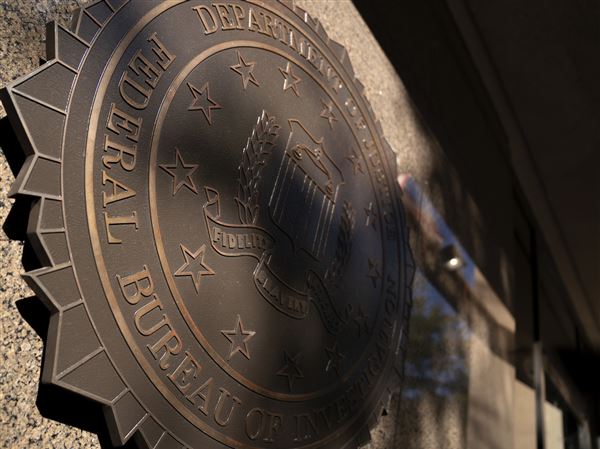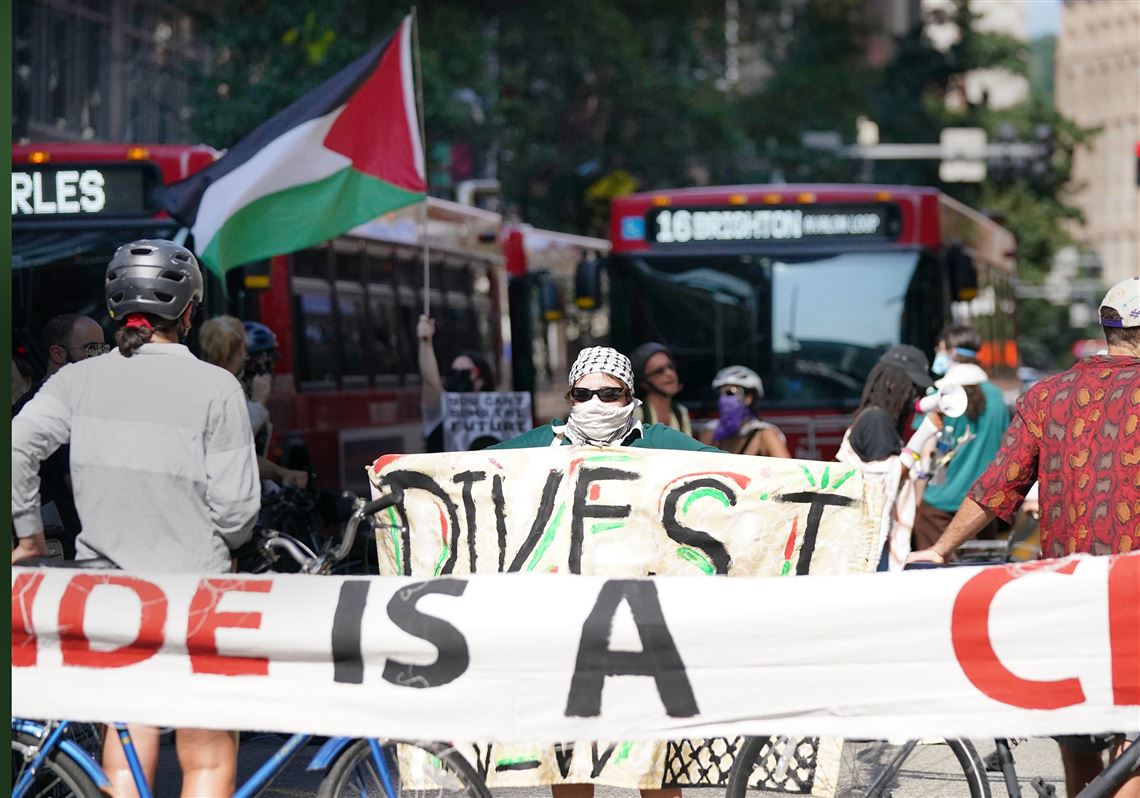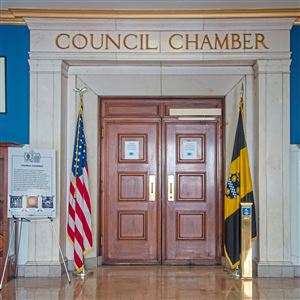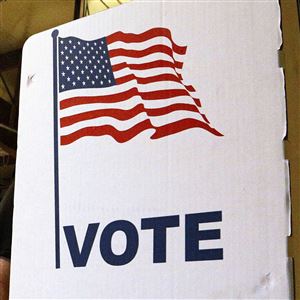Pittsburgh City Council on Wednesday escalated a long-running battle over the city’s economic ties to Israel when officials moved to block a citizen-led referendum that the lawmakers said would greatly affect local residents.
For more than a year, since Israel launched a devastating invasion of Gaza after a brutal attack by the terrorist group Hamas, activists have tried to force the city to cut ties with any companies that do business with Israel.
Their effort to get a referendum on the ballot last year failed, but another group — Not On Our Dime — has launched another effort and is gathering signatures to get the measure in front of voters.
City Council is responding with its own referendums: two proposed ballot measures that would change the city charter to prohibit the divestment language from being added to the city’s charter.
Led by Erika Strassburger, council took the first major step toward approving the measures on Wednesday and set the stage for what could be a final approval as early as next week. For the first time, lawmakers explicitly linked their legislation to the controversial divestment effort.
Cutting off businesses that do work with Israel would mean the city could not work with groups like Amazon, Google, Dell, Microsoft and many others.
“It would grind the city to a halt,” Ms. Strassburger said. “We would not be able to function as a city.”
Organizers for the Not On Our Dime campaign spoke during public comment during Wednesday morning’s meeting and while they said they didn’t see a conflict between the council ballot questions and their efforts, Ms. Strassburger said her legislation was meant to block their campaign.
“This is in direct response to what I see as a threat to our ability as public servants, to be able to fulfill the tasks that the public expects of us.”
The first of Ms. Strassburger’s two ballot measures would prohibit amendments to the charter that add “duties or obligations beyond the lawful scope of the city’s authority.” The second includes anti-discrimination language that would prevent the city from cutting ties with a business or person based on their national origin or affiliation with a foreign nation.
Council members Dan Lavelle, Bob Charland, Anthony Coghill and Bobby Wilson are all listed as co-sponsors of the legislation.
For the Not On Our Dime campaign, organizers continue to collect signatures to get their own question on the ballot asking voters if the city’s finances should be realigned to match its “moral standards,” namely divesting from any country “engaged in genocide and apartheid — such as the state of Israel — and corporations doing business with them.”
Ms. Strassburger said she “respects the desire to keep taxpayer money from supporting human rights abuses,” but the current divest petition from Not On Our Dime is “fraught with … ill-defined standards and unreasonably sweeping reachings.”
She noted that past divestment efforts from countries like North Korea were backed by the federal government.
“This is not,” Ms. Strassburger said. “And it’s my concern that we would be working beyond the scope of what is lawful.”
Pennsylvania has an anti-boycott, divestment and sanctions law on the books that bans any business doing work with the state from working with a company that boycotts Israel for political reasons. Should the city divest from Israel, contracts with state agencies could be at risk.
Ms. Strassburger also pointed out that should the divest referendum be passed, it would be the responsibility of city-staff to monitor international affairs to see what countries’ actions could be deemed genocidal and determine what business do work with them.
“I don’t believe it’s the place for city governments to take action on international affairs,” Ms. Strassburger said. “As strongly as we might feel, as much as we all have the opportunity to use the bully pulpit to convene communities, I feel that our responsibility lies here at home.”
During Wednesday’s meeting, Ms. Strassburger amended the anti-discrimination ballot question to include ancestry, sex, sexual orientation and gender identity and expression as groups the city cannot discriminate against by refusing to do business with.
She said it was an oversight that those groups weren’t included in the first iteration.
The anti-discrimination referendum “can stand on its own,” said Ms. Strassburger, who has been largely involved in other anti-discrimination efforts in the city including passing legislation in 2021 that prohibited employers from discriminating against domestic violence victims.
Council members gave preliminary approval to the legislation and it could be up for a final vote as early as next Tuesday. On Monday, council has scheduled a public hearing regarding the ballot questions.
First Published: January 29, 2025, 7:47 p.m.
Updated: January 30, 2025, 6:53 p.m.



















